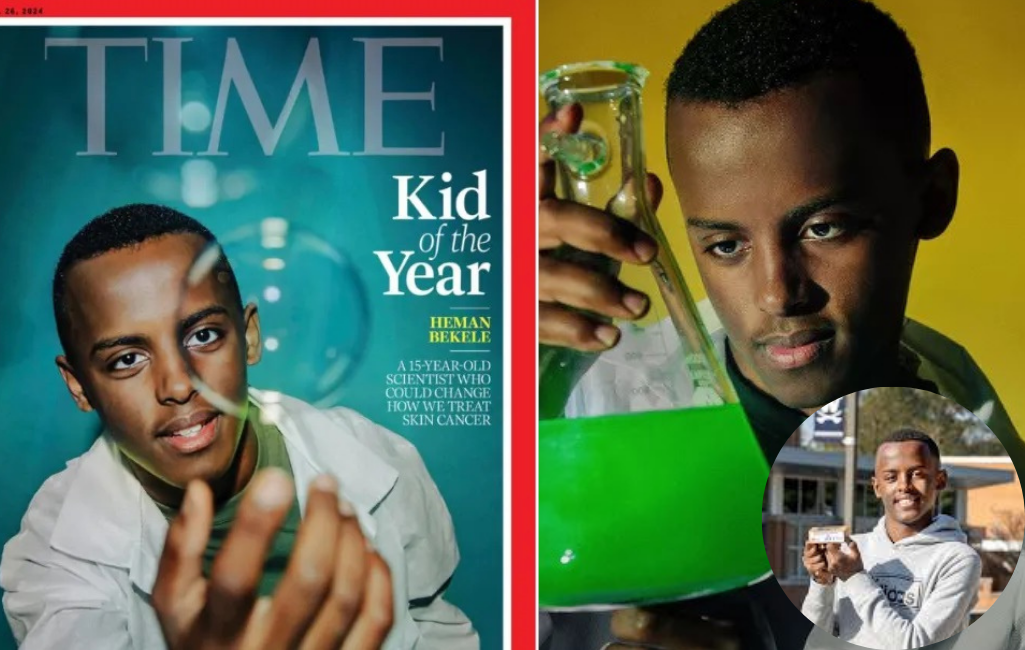
Heman Bekele, who grew up in Ethiopia, first observed the adverse effects of sun exposure on skin at a young age. He saw many people working outdoors without sun protection, as noted by TIME in their feature celebrating Bekele as their “Kid of the Year.”
After moving to the U.S., 7-year-old Bekele received a chemistry set for Christmas, which sparked his interest in chemical reactions. This curiosity grew into a deeper awareness of the risks associated with prolonged sun exposure.
“When I was younger, I didn’t think much of it, but when I came to America, I realized the serious impact of the sun and ultraviolet radiation,” Bekele told TIME.
His interest in skin cancer research intensified, leading him to discover imiquimod, a drug approved for treating certain skin cancers. He wondered if it could be adapted to treat earlier stages of the disease and be made more affordable.
Bekele decided to develop a soap containing nanoparticles loaded with imiquimod, which would remain effective on the skin even after washing. His innovation aims to offer a more accessible and cost-effective treatment alternative, potentially reducing the $40,000 cost of the cream.
The soap has garnered attention from scientists and was recognized by the 3M Company and Discovery Education’s 2023 Young Scientist Challenge, which awarded Bekele $25,000 for his work.
While the soap is still in the early stages of development, Bekele is continuing his research at Johns Hopkins Bloomberg School of Public Health and receiving support from molecular biologist Vito Rebecca, who has become his sponsor. Together, they are testing the soap using mice in the lab.
TIME reports that it could be about a decade before the soap is approved for cancer treatment. In the meantime, Bekele is actively promoting his research, balancing his schoolwork at Woodson High School, and enjoying activities like marching band and chess.
Explore more articles for the Women Community here.
This article was originally published on diversitycomm.net.

